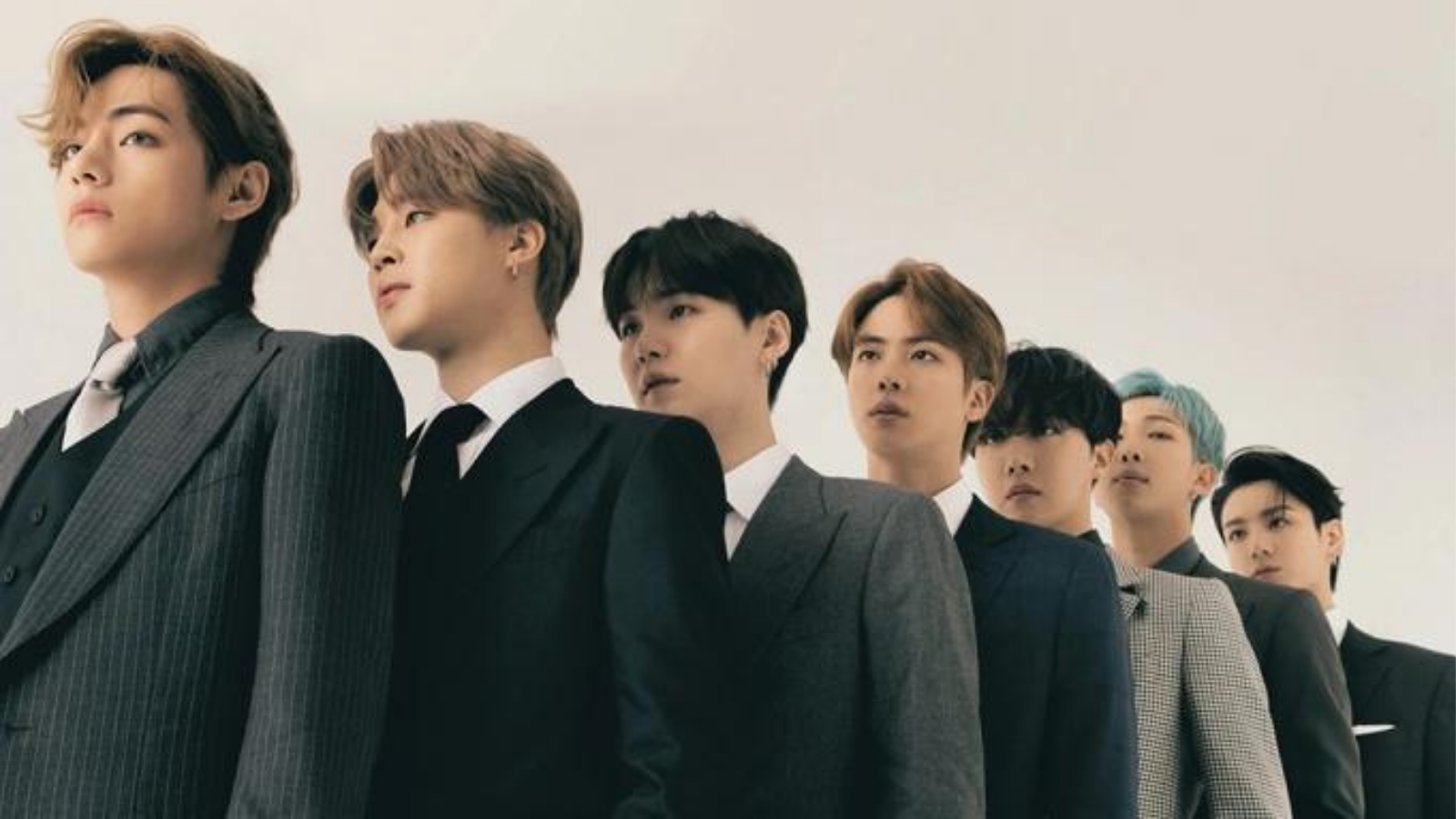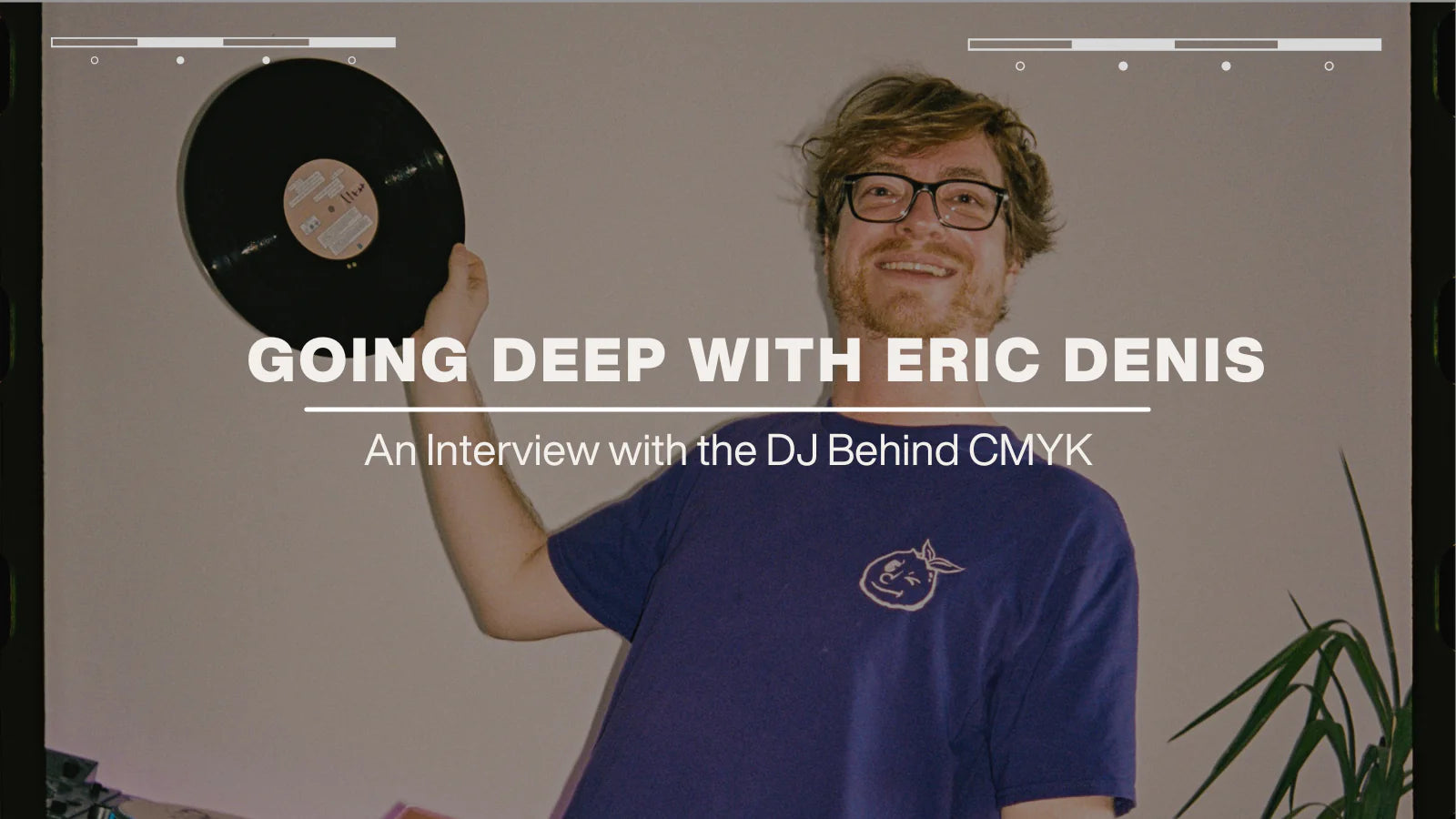Who is BTS? Well. . . they're the biggest band on the planet.
I didn’t think I would be pasting pictures of a boy band into my journal in my mid-thirties, yet here we are.
The band in question is BTS, the biggest music act in the entire world --I, like the teenager I never was, am happily decorating my diary with stickers and photocards of seven young men from South Korea: RM, Jin, Suga, J-Hope, Jimin, V, and Jungkook.
Plus ça change, plus c’est la même chose.
The more things change, the more things remain the same. JNCOs, middle parts, skinny brows, physical albums lined up like collector’s editions on my shelf—the only difference between 2001 and 2021 are the faces staring back at me from their posters on my wall. Back then, the boys plastered over middle school lockers looked like my white father; now, they have more in common with my Korean mother. Twelve-year-old me would have lost her shit to discover that being Korean is apparently somehow cool twenty years in the future, and a large part of it seems due to the growing presence of K-pop in the west, a genre I didn’t really listen to at that age.
I still don’t, to tell you the truth.
There’s a saying in ARMY circles (that would be ARMY, the name of BTS’s fandom, not the military branch) that BTS paved the way, meaning that BTS tends to be the exception, rather than the rule, for…well, just about everything. BTS are trailblazers and record-breakers on a music industry level, but they’re disruptors even on a personal level: I’ve never once stanned a boy band or cared much about K-pop, but here I am, spending not an inconsiderable amount of my disposable income on BTS merchandise.
My mother once asked me what their appeal is. How does BTS compare to her favorite (now disbanded) K-pop idol group, TVXQ?
“You still there?” she asked when I fell silent on the phone. “Did you hear me?”
“Yes, I heard you,” I replied.
“Well?”
I didn’t have an answer then.
But I think I do now.
What is BTS?
I suppose the first question I have to answer is What is BTS?
BTS stands for the westernized acronym of a 7-member Korean idol group called Bangtan Sonyeondan, which debuted in 2013. The name translates to “bulletproof boys” and is a bit of a relic from their earliest years, when they were a hip-hop ensemble.

The group is comprised of three rappers and four vocalists, and all seven members write, compose, and produce their own music, which spans every genre from rap, R&B, funk, neo-soul, trap, EDM, dance pop, ballads, and more. This one particular BTS song not to your taste? No worries; they have an extensive discography of over 300 songs, not including the covers and tracks they release for free on Soundcloud, nor the solo mixtapes a few of the members have released on their own, nor the songs members have produced for other artists. There’s a lot to dig through, so I’m sure you’ll find a BTS song you like, if you take the time.
After all, that’s how most people become fans of any band.
And despite what skeptics might think, most people do become fans of BTS through their music. The vast majority of their songs are in Korean, but they also have several Japanese albums, as well as multiple English singles. It’s not hard to find translations of their lyrics online—even Genius has them. Although some of the nuance, wit, lyricism, and wordplay might get lost, the power of their message transcends language barriers and resonates with their audience. The members write from their own experiences—loss, grief, regret, fear, mental health struggles, artistic burnout, etc.—and that authenticity shines through in their creative work. While they have a couple of love songs here and there, for the most part, BTS make music to tell more personal stories about themselves.
But music, no matter how good, isn’t enough to turn a casual listener into an avid fan. Into ARMY.
For that, I must answer Who is BTS?
Who is BTS?
BTS, affectionately called Bangtannies by ARMY, are seven chaotic crackheads who eat a lot of cheap Korean food, mercilessly throw each other under the bus for 5000 won (about $4.22) convenience store coupons, and love each other so much they don’t know what to do with themselves. It’s this bond that is the most appealing thing about them. People fall in love with BTS for the same reasons people fall in love with the Fast and the Furious franchise: BTS doesn’t have friends; they have family.
It’s a dynamic that can’t be faked either. There exists hours upon hours upon hours upon hours of non-music related BTS footage—dance practices, behind-the-scenes tour videos, livestreams of the boys eating room service in their hotel rooms after concerts, their weekly variety show, their travel shows, and more—and it would be immediately obvious if their intimacy were an act put on for the camera. The members have been together for over a decade; they even have each others’ parents’ phone numbers programmed into their contacts. If that doesn’t make them family, I don’t know what does.
They are not just a boy band, but a band of brothers.

In the fourth season of Bon Voyage, BTS’s travel show, the members went to to New Zealand, spending a few days camping and hiking in the breathtaking scenery, and a few days in Queenstown. While in Queenstown, they rented a three-bedroom house, played games to determine who got each room and who shared with whom, then immediately got around to the more domestic tasks of grocery shopping and cooking. After cobbling together a few Korean dishes with New Zealand ingredients, Suga sat down and told the others to fetch others for dinner.
“Taehyung-ah!” he yelled, using V’s given name. “Taehyung-ah!”
V, who was sitting right beside him, blinked in surprise.
“Oops,” said Suga, flashing his younger member an apologetic, gummy grin. “I mean, Jungkook-ah!”
A sudden, visceral memory returned to me as I watched—me, setting the table for dinner, paper napkins folded neatly in half as I laid the spoons and chopsticks on top; my grandmother, calling my name as she brought out a still roiling, boiling pot of jjigae.
"Sarah-yah!" she said. "Sarah-yah!" Then she caught sight of me. "I mean, Taylor-yah!" she cried, summoning my little brother to dinner.
I laughed. After all, whomst among us hasn’t summoned the wrong child to supper?
A million, myriad, minute little moments like these make up the vast majority of BTS’s non-music content. Chemistry is a capricious, changeable thing, but BTS’s sibling energy? Off the charts. It’s evident when Jin, the oldest, is seen corralling and collecting the wayward youngest members off the stage after a performance. You can see it when Suga, the second oldest, knows exactly what groceries to buy for their camping trip because he knows all of the members’ food preferences. You feel it when J-Hope posts unpublished and candid photos and videos of each of boys’ on social media to celebrate their birthdays, when RM and V immediately start washing dishes after dinner without being prompted, when Jimin reassures Jungkook when he’s crying.
If you know the story of BTS’s come up, it’s not surprising that the members are so close. Theirs is the ultimate rags to riches narrative; beginning as true underdogs and outsiders both at home and abroad. They debuted with little industry support; their management company was nearly bankrupt, and not one of the so-called “Big 3” entertainment companies that dominated the media landscape. From sharing a studio apartment in their earliest years to finding part time delivery work to support their music careers, now they in fly private planes and buy each other Gucci and Louis Vuitton as gifts. There’s no one in the world who can understand what the members of BTS are going through except each other.
“What a relief,” says Suga, reciting a poem he wrote for his members, “that we are seven. What a relief, that we are together.”
ARMY has a saying: You find BTS when you need them most.
Great Music Finds Us
I know this truth all too well; I found the band during one of the worst mental health crises of my life. I spent most of June 2020 on the couch, watching video after video after video of BTS content until little by little, the thoughts of wanting to die began to recede. Their songs about mental health, about loving yourself, about finding comfort where you can, resonated deeply with me. But it was their wholesomeness, their willingness to be emotionally vulnerable, and their utter unselfconsciousness about their love for each other that I found the most healing.
And it’s something I think a lot of people need, especially in these pandemic times. One of my favorite things to do is watch BTS work their transformational healing magic on others, especially on other young men. Some people have Ted Lasso; I have seven emotionally intelligent young men from Korea whittling away western notions of toxic masculinity. There is an entire industry of BTS reactors on YouTube, most of whom start from a place of pre-conceived notions about the sort of music they make.
Slowly, but surely, I watch these reactors become surprised as they discover how “hard” BTS’s hiphop tracks are, grow impressed by BTS’s difficult and intricate choreography, before becoming charmed by their crackhead and chaotic personalities during interviews and other non-music related content. As they start falling down the BTS rabbit hole, I watch as they begin to shed all the walls and armor regarding their own ideas of masculinity because here are seven young men who are unafraid to be loud and proud about how much they love their brothers.
“Why don’t I have friends like these?” many of them would say with dismay, forgetting that not six months ago, they would have squirmed with discomfort and cries of no homo.
There are those that say BTS sells their audience a fantasy, and these skeptics are right, just not in the way they think. The skeptics think BTS is nothing more than an assemblage of pretty faces and soft, unthreatening masculinity for impressionable teens to feel safe in loving. But the truth is the fantasy that BTS is selling is the life they are living—not the private planes or the Philippe Patek watches—but the making of good art with six of your closest friends. Friends who have your back, who hype you up, who humor you, who ground you, and who love you no matter what.
Friends who aren’t friends, but family.

Why BTS is Popular.
These days, my mother has gotten more curious about BTS.
“I wish I could get a ticket to their concert here,” she frets. “I want to know what the hype is about.”
Sometimes I think about how I would introduce and indoctrinate my mother into BTS fandom, what playlist of videos I would put together that best showcases their unique combination of talent, charisma, charm, vulnerability, and authenticity. But she doesn’t have time to consume hours of content, so I tell her that I’ve finally figured out their appeal.
“Oh?” She sounds intrigued. “What is it?”
“So first I have to answer, What is BTS…”

S. Jae-Jones (called JJ) is an artist, an adrenaline junkie, and the New York Times bestselling author of Wintersong and Shadowsong. Born and raised in Los Angeles, she now lives on the wrong coast, where she can’t believe she has to deal with winter every year. You can find her on Twitter, Instagram, her newsletter, and her website.




Share:
Bessie Stringfield: The Motorcycle Queen of Miami
The Most Iconic Independent Venues